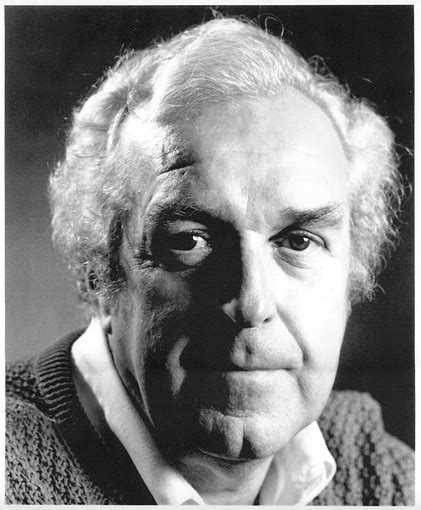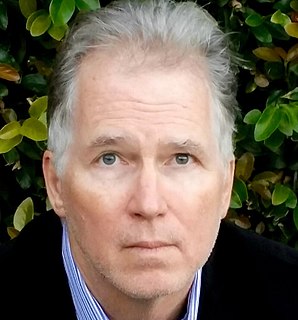A Quote by Jacques Barzun
Seeing clearly within himself and always able to dodge around the ends of any position, including his own, Shaw assumed from the start the dual role of prophet and gadfly. To his contemporaries it appeared frivolous and contradictory to perform as both superman and socialist, sceptic and believer, legalist and heretic, high-brow and mob-orator. But feeling the duty to teach as well as to mirror mankind, Shaw did not accept himself as a contradictory being.
Quote Topics
Related Quotes
While browsing in a second-hand bookshop one day, George Bernard Shaw was amused to find a copy of one of his own works which he himself had inscribed for a friend: "To ----, with esteem, George Bernard Shaw." He immediately purchased the book and returned it to the friend with a second inscription: "With renewed esteem, George Bernard Shaw.
Of all the major religions, or lack thereof, the atheist's is one of the best pretenders: his foundation for all existences, as well as moral behaviors for the permanent good of mankind, begins at science but ends at himself, the Napoleon complex of both intelligence and imagination. On the other hand the anti-theist wouldn't survive without a deity beyond himself to hunt. He doesn't pretend, he simply nullifies his own position.
When it happeneth that a man signifieth unto us two contradictory opinions whereof the one is clearly and directly signified, andthe other either drawn from that by consequence, or not known to be contradictory to it; then (when he is not present to explicate himself better) we are to take the former of his opinions; for that is clearly signified to be his, and directly, whereas the other might proceed from error in the deduction, or ignorance of the repugnancy.
Despite his [Artie Shaw's] affectations of reclusiveness, he never tired of talking about himself, as countless long interviews reveal. I do not recall an anecdote he ever told me that was not in some way intended to convey a sense of his own superiority to everyone. . One wonders how a person of his character could produce such beauty.
Good work is no done by "humble" men. It is one of the first duties of a professor, for example, in any subject, to exaggerate a little both the importance of his subject and his own importance in it. A man who is always asking "Is what I do worth while?" and "Am I the right person to do it?" will always be ineffective himself and a discouragement to others. He must shut his eyes a little and think a little more of his subject and himself than they deserve. This is not too difficult: it is harder not to make his subject and himself ridiculous by shutting his eyes too tightly.
The whiskey warmed his tongue and the back of his throat, but it did not change his ideas any, and suddenly, looking at himself in the mirror behind the bar, he knew that drinking was never going to do any good to him now. Whatever he had now he had, and it was from now on, and if he drank himself unconscious when he woke up it would be there.
Shaw does not merely decorate a proposition, but makes his way from point to point through new and difficult territory. This explains why Shaw must either be taken whole or left alone. He must be disassembled and put together again with nothing left out, under pain of incomprehension; for his politics, his art, and his religion - to say nothing of the shape of his sentences - are unique expressions of this enormously enlarged and yet concentrated consciousness.
Man shouldn’t be able to see his own face – there’s nothing more sinister. Nature gave him the gift of not being able to see it, and of not being able to stare into his own eyes. Only in the water of rivers and ponds could he look at his face. And the very posture he had to assume was symbolic. He had to bend over, stoop down, to commit the ignominy of beholding himself. The inventor of the mirror poisoned the human heart.
Man—every man—is an end in himself, not a means to the ends of others; he must live for his own sake, neither sacrificing himself to others nor sacrificing others to himself; he must work for his rational self-interest, with the achievement of his own happiness as the highest moral purpose of his life.
However tiresome to others, the most indefatigable orator is never tedious to himself. The sound of his own voice never loses its harmony to his own ear; and among the delusions, which self-love is ever assiduous in attempting to pass upon virtue, he fancies himself to be sounding the sweetest tones
The first responsibility of the Muslim is as teacher. That is his job, to teach. His first school, his first classroom is within the household. His first student is himself. He masters himself and then he begins to convey the knowledge that he has acquired to the family. The people who are closest to him.
There exists an infinite, eternal Being, subsisting of himself, who is one without being alone; for he finds in his own essence relations whence, with the necessary movement of his life, results the absolute plenitude of his perfection and his happiness. A Being unique and complete, God suffices to himself.



































